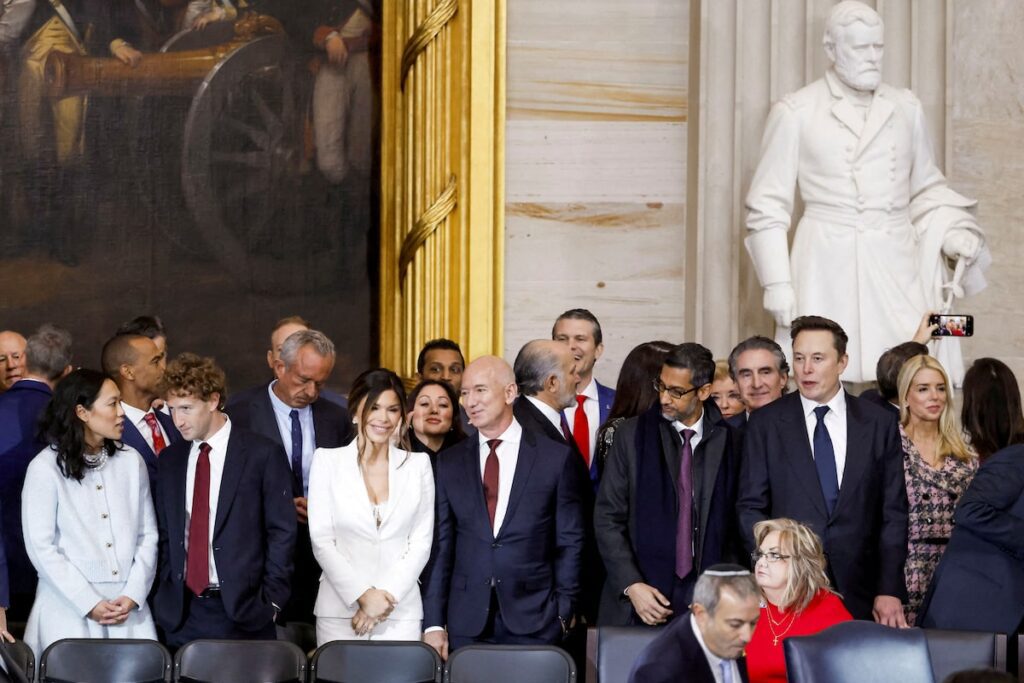The article discusses the influence of prominent tech billionaires on American democracy, particularly in relation to their connection with Donald Trump. Elon Musk, Larry Ellison, Mark Zuckerberg, and Jeff Bezos are highlighted as the wealthiest individuals, all of whom have navigated complex relationships with Trump. Musk’s significant financial support of Trump, Ellison’s close association with him, and Zuckerberg and Bezos’s attempts to reconcile their standings reflect a shift in Silicon Valley’s dynamics from liberalism to support for Trump’s agenda.
The rise of these tech oligarchs is attributed to the Supreme Court’s 2010 Citizens United decision, allowing unlimited corporate funding in politics. This has led to a unique form of influence compared to past wealthy individuals, as today’s tech leaders wield immense power with fewer realities to ground them in the everyday lives of most citizens. Their wealth was rapidly accumulated through tech innovations rather than decades of industrial business practices, creating a distinct disconnect from societal concerns.
The article argues that the current tech billionaires lack the humility and curiosity characteristic of previous generations, leading to an intellectual hubris that poses a threat to democratic governance. They are portrayed as detached from reality, using their wealth to manipulate political processes without the accountability that should come with such power. Ultimately, the piece warns against allowing this concentration of wealth and influence to dictate the direction of governance in a democracy, asserting that billionaires should not wield more power than any other citizen.



